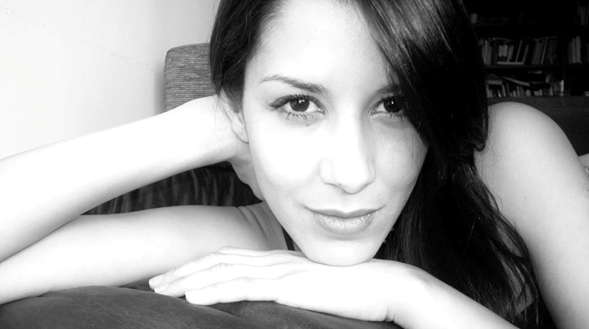Beware of Books!
Ivania Cox | May 2019

There is an expression in Spanish: “Books don’t bite.” It encourages people to read and learn to improve their intellectual skills. But despite that old expression, which almost nobody uses nowadays, there is a common fear of the consequences of a life devoted to books in terms of reading them or writing: that it can be a dangerous activity, or at least not a desirable way of living. So, if you are interested in literature, be ready to hear the following.
“You will starve!” is probably the first thing people will tell you if you express your desire to become a writer or even just study literature—and the drama goes to the extreme of using starvation as a horrible destiny that everybody who dedicates his or her life to books will have to face. But if the determination of the young writer overcomes all the negativity around his or her choice, there are still more arguments to discourage any attempt.
“Writing is a dangerous life.” Along with having to struggle to earn a living, there is often a prejudice about artists having bohemian or treacherous lifestyles. (Certainly, there are many real-life examples of writers who are alcoholics or drug users or eccentrics in the eyes of society.) This can be a common preconception if you were raised in a conservative family; in a Catholic country such as Costa Rica, where I was born, I think almost all the families are conservative. In other countries of Latin America, like Argentina, where I have lived most of my adult life, becoming a writer may have other dangers attached; maybe they are not always current dangers, but they exist as ghosts that prevent youngsters from entering that haunted house.
In the 1960s and 1970s, there were dictatorial governments in Argentina. In 1966, in what was called “The Night of the Long Batons,” the federal police purged professors and intellectuals who were considered to be in opposition to the right-wing military dictatorship. Those intellectuals were forced to leave the country. During that time, with other dictatorial governments, even having a book could be “outlawed” because of its potentially political content or the political point of view of the writer. Some authors and editors were illegally imprisoned, and some were killed.
There is a trend among some to mistrust literate people; it is an anti-intellectualist preconceived notion against writers, journalists, and communicators, as if a person who knows how to use words is going to use them for deception. I am not saying that doesn’t happen, but in an era in which some people claim that there are “alternative facts,” reading and learning how to analyze are the only ways to avoid being deceived by erroneous or biased information. In Costa Rica, there is a very demeaning term used for students and professionals of social sciences and arts: chancletudo, a person who wears sandals. Professionals in those careers wear very casual clothes in comparison with business-suited executives or the trendy style of the new entrepreneurs. Chancletudo is a term that conveys deep resentment, which some people explain as a reaction to the elitism of some intellectuals. But it has an effect on the young generations, implying that reading or writing books or being interested in arts are useless activities that drive you away from a productive and successful path. As Isaac Asimov said, there is a false idea that democracy means “my ignorance is as good as your knowledge.” It is easy to see how recently this idea has become popular and has a strong presence in the media.
“Books aren’t fun.” That attitude has made many people unwilling to explore what they may find in books. It is uncommon that somebody says, “I don’t like movies” or “I don’t like music,” as there are many kinds of music and movies. When somebody tells me, “I don’t like reading,” I am sure that person hasn’t been in contact with the right kind of books.
A friend of mine who works in a program in Mexico to promote reading among schoolkids told me: “I usually start reading them horror stories.” When my friend was reading the story of “La Llorona,” a famous Latin American horror tale, to a group of 11-year-olds, “it was a rainy afternoon and suddenly the wind hit the window and it made a very strong noise.” My friend said that the noise helped their “imagination to fly away...I don’t mean that you have to make them feel scared, but kids”—even kids who are exposed to mass media all day—“still enjoy a good story.”
In conclusion, maybe books do bite—yes, they bite—and they transmit ideas, desires, tales from the past and the future, new landscapes, life stories, wishes, dreams. They inoculate imagination and creativity: reading is the starting point for anybody who one day decides to write new stories. And in developing countries, such as the Latin American region, there is a need for their own people to tell their own stories as a way to compensate for the invasion of information from developed countries. I think this applies to the less-represented groups in any environment. So as a way to exist, we write, and we will continue doing so whether it is dangerous or not.
Ivania Cox is an actress, writer, and playwright who was born in Costa Rica and is currently living in Buenos Aires, Argentina. Her work in theater and literature is about gender roles, feminism, immigration, the relationship with otherness, and art as a mechanism for change. Currently, she is participating in the Women’s Creative Mentorship Project of the University of Iowa as a mentee.
